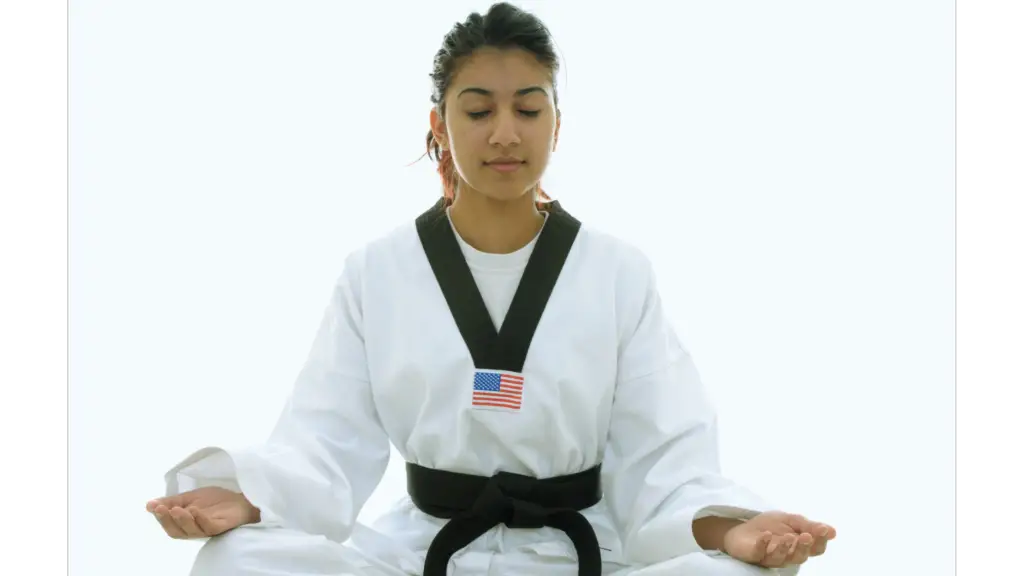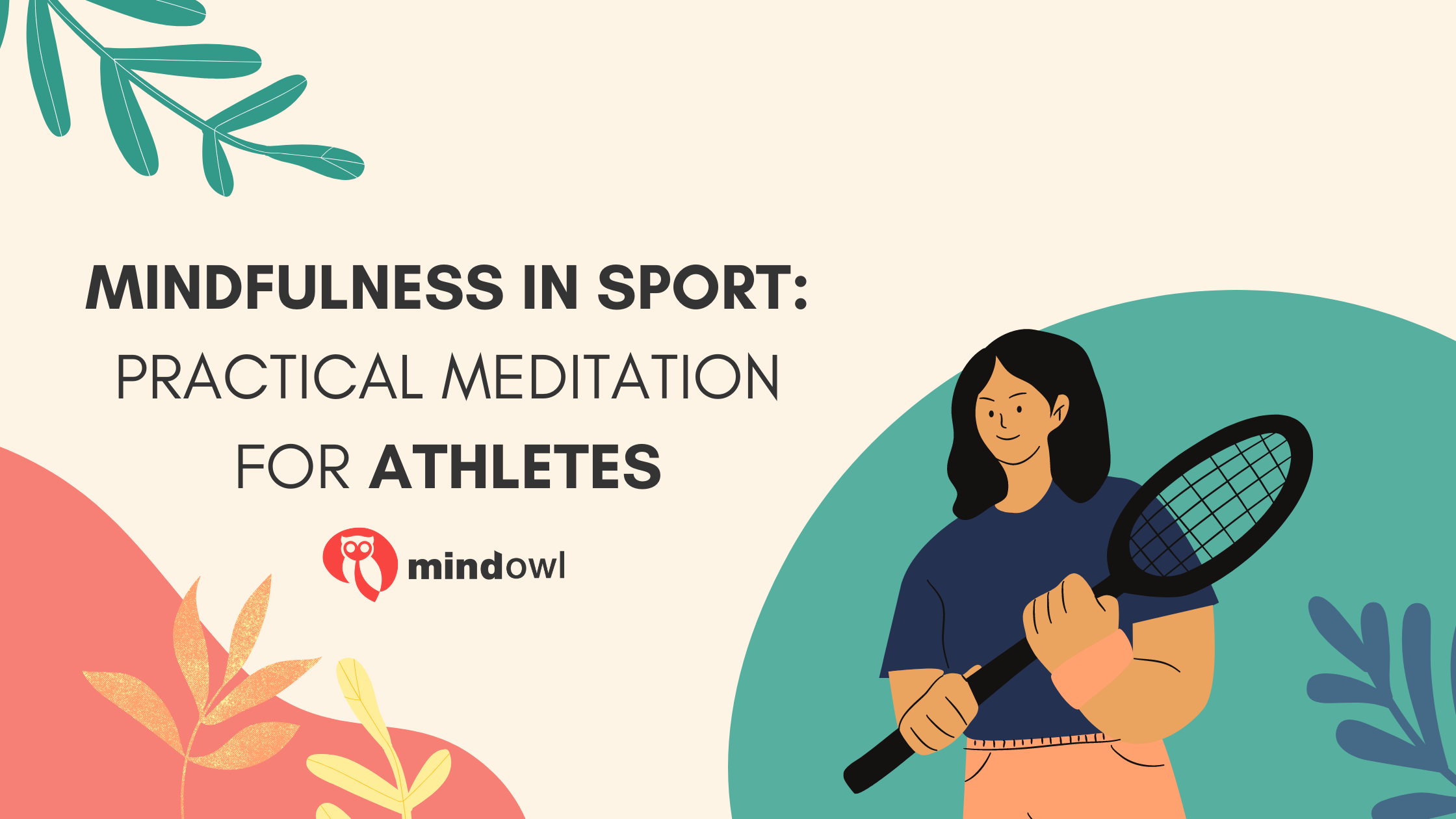Mindfulness and meditation practices are being used increasingly in the world of professional sports, to optimize performance, improve mental and physical health, and increase strength and resilience. The benefits of meditation are primarily linked to improving psychological health, regulating mental processes and coping with negative emotions. However, many types of mindfulness-based intervention can also, directly and indirectly, impact athletes’ physical performance. Sports psychology now plays a key role in the lives of elite athletes. Whether they be tennis players, long-distance runners, or footballers, psychological skills are almost as important as physical capabilities. Considering the importance of the mental side of any sport – especially at an elite level – is an area that perhaps hasn’t been explored in enough depth within the sphere of meditation, mental health, and emotional intelligence. So how exactly does mindfulness-based therapy help sportspeople to perform better? Let’s find out…
How Mindfulness is Used in Elite Sport
Being Present
What’s the first thing that pops into your head when you think of mindfulness? Take a moment to think and take note of what immediately comes to mind. I’m guessing many of you thought of the phrase “being present”, or something to that effect. This term is one of the main principles of mindfulness, and training in this area can be very useful for athletes. Being present can help athletes to stay focused, block out distractions and leave the stresses and worries of everyday life behind when it is time to perform. This allows athletes to access the optimal mindset for elite performance, placing all of their concentration on their game.
Flow State
Mindfulness practice provides the platform for athletes to enter what is known as “flow state”. This is when athletes zone in and become fully immersed in their performance, and their movements and actions become instinctive. Years of practice and training are vital in reaching this flow state; however, mindfulness training can certainly help athletes get to this level of absolute focus and instinctive high-level performance. Mindfulness techniques can help to accelerate the process, ensuring that athletes’ mental capabilities are in tune with their athletic performance. It could be argued that “flow state” is a state of mindfulness specific to sport, and an example of being fully present in the current moment.
Breathwork
Mindfulness-based interventions can also be really useful in relation to specific isolated aspects of performance such as penalty kicks in rugby or free kicks in football. Mindfulness and meditation allow us to increase our body awareness, our movement, and our breathing. This can be helpful for penalty takers in rugby or football, who are relied upon to produce moments of quality under intense pressure. We often see kickers go through very specific routines before each kick, and these routines often involve specific breathing patterns used to enhance relaxation and mental focus. In these moments, you may also see players using positive self-talk to enhance their confidence and faith in their ability. This is a practical example of how meditation and mindfulness can be used to regulate athletes’ breathing during high-pressure moments. For more information on breathwork exercises, check out our article on meditation and breathwork.
Emotional Intelligence
Emotional intelligence is an area of professional sport which is often overlooked. In sport, especially elite sport, being able to regulate both positive and negative emotions and maintain control in games is very important. In football, for instance, the loud, high-octane atmosphere created by fans can have a big impact on players. Athletes need to be able to keep control of attention, manage internal processes and stay focused on the task at hand in order to achieve optimal performance. For footballers, this goes both ways; they must refrain from reacting to opposition fans and the negative emotions they may provoke, while also making efforts not to get too caught up in the emotions of their loyal supporters. However, this doesn’t just mean blocking out the atmosphere and the emotions or bodily sensations that it brings. Players can benefit from learning how to deal with different situations and use their emotions in the right way, striking the balance between channelling emotions for extra motivation while also staying composed enough to allow for optimal performance. In other sports such as golf or tennis where fans aren’t as influential, emotional intelligence training should focus more on internal experiences and emotions, as opposed to outside influences. Mindfulness can also be used to help athletes with nerves and performance anxiety before competition. So, developing athletes’ emotional intelligence is a useful example of mindful sport performance enhancement which can be applied in numerous in-game situations and pre-match preparation.

Mindfulness Intervention in Sport/Exercise for the Average Person
That’s enough about the stars for now… let’s take a look at how the average person can benefit from mindfulness-based therapy.
Getting in The Zone
When it comes to the practice of mindfulness in amateur sport and exercise, the same principles apply. If anything, it should be easier for the average person to use components of mindfulness within sport, as they don’t need to consider factors such as the high level of pressure elite athletes face consistently. For us normal folk, mindfulness should be used to help us in the internal battle with our thoughts, as external factors are less relevant to us. Therefore, we should focus first on using meditation and mindfulness exercises to get us in the zone and increase our sense of present-centeredness. One mindfulness technique designed to let us adjust to our physical surroundings is open attention training, which seeks to expand our sense of perception beyond its usual narrowness. This can help enhance athletic performance, even if you’re not participating at a super competitive level.
Mental Preparation
Practising meditation in preparation for exercise is a great way to become more present. The average person has a lot of thoughts going through their mind at any one time, and an overly active or anxious mind can hamper our performance. It can be useful to meditate before exercise in order to clear your mind and turn your focus to your workout. This sort of mental training can be done through mindfulness meditation, which prompts you to acknowledge your thoughts beforehand so that they won’t distract you during your exercise. If you fancy trying a more simple method, just write down your thoughts before exercise. Getting your thoughts and distractions off your chest and onto a page allows you to be more present and focused on your performance, rather than thinking about your day’s work, or what you’re going to eat for dinner that evening. These may seem like minor issues but getting the worries and stresses of daily life out of your mind can allow you to push yourself further and get the most out of your workout.
The Internal Battle
The psychological strain of everyday life can hinder our exercise and physical performance. Stresses, anxieties, negative thoughts and distressing emotions can sap our mental energy, hinder our concentration levels, and lead to a lack of mental resilience. This is the internal battle I mentioned previously, that voice in the back of your mind telling you you’re too tired to go on. Mindfulness skills can help you with this internal battle by keeping you focused on the task at hand, staying present in the moment, and not allowing your mind to wander.
How to Use Mindfulness for Your Exercise Routine
Taking a mindful approach to performance enhancement can help make you more invigorated and inspired by sport. Over the course of this article, we’ve taken a look at some of the key areas of sport and exercise which can benefit from the application of techniques from mindfulness meditation. Now, let’s consider some practical methods you can implement to try to integrate mindfulness and meditation practices into your sport or exercise routine.
General Mindfulness
First of all, practicing mindful awareness and meditation in your everyday life (outside of sport/exercise) and making it a regular practice is a good place to start when it comes to improving athletic performance. Becoming more present in general will not only increase your quality of life but make it easier to enter a flow state when exercising. This will help to improve your focus and concentration, allowing you to get full value from your workout or training session. Take time to meditate regularly, and try to make it part of your daily routine. You should get used to letting go of your stresses and worries and embrace the present moment, becoming accustomed to that feeling of being present, and applying it into your training.
Pre-Match Routine
Making mindful meditation part of your pre-game or pre-workout routine can help you clear your mind and get in the zone. Mental preparations are just as important as physical preparations, as mental training helps put you in the right mindset for optimal performance. Sports meditation has become a crucial element of how sports psychologists train elite athletes for competition; however, the pre-match routines and rituals of individual athletes are arguably just as important when it comes to finetuning mental preparation and maximising athletic performance enhancement.
Make Mindfulness Work for You
As we’ve discussed, mindfulness is not just for elite athletes. We can all benefit from being more present, and the implementation of mindfulness intervention skills can enhance your enjoyment of general exercise and recreation, as well as improving your mental and physical strength. Whether you’re playing football or attending a local spin class, aiming for peak athletic performance or simply looking to improve your physical health, the same principles apply across the board. However, your approach to using mindfulness should be specific to your sport, and should take into account specific characteristics and limitations. For example, you may find that it takes you a while to get fully focused during games, but once you do get in the zone, your concentration is very good. In this case, you should perhaps develop a pre-game meditation routine designed to make you more present, clear your mind, and get focused from the outset.

To Conclude…
Mindfulness therapy can be very useful for elite athletes. If you’re a head coach, sports psychologist or analyst, it’s likely you’re already incorporating it into your daily work. However, it’s important to remember that we amateurs can also benefit from the effects of meditation and mindfulness when it comes to sports and general exercise. The same principles can be applied whether you’re an avid footballer, gym-goer, or long-distance runner. Mindfulness meditation has aided the performance of some of the biggest sporting legends in recent history, including basketball great Kobe Bryant, who spoke openly about the importance of daily meditation to his success in life and sports.
As we’ve seen, mindfulness techniques can help you reach your peak performance and get increased benefits from your workout. Of course, the type of techniques you should use will vary based on the type of exercise you do or the sport you play, but the same general principles will always apply. In sports such as golf where high levels of concentration are required on each shot, techniques such as regulating your breathing can be useful to help you stay relaxed, composed, and focused. Similar techniques are also useful for penalty takers in sports such as rugby and football. Elsewhere, open attention training, mantra meditation, or yoga may be beneficial. Remember, the application of mindfulness techniques will also vary based on the individual. The use of mindfulness in sport is not a one size fits all solution; so start your mindfulness journey here, try out some of the techniques provided and see what works for you.
MindOwl Founder – My own struggles in life have led me to this path of understanding the human condition. I graduated with a bachelor’s degree in philosophy before completing a master’s degree in psychology at Regent’s University London. I then completed a postgraduate diploma in philosophical counselling before being trained in ACT (Acceptance and commitment therapy).
I’ve spent the last eight years studying the encounter of meditative practices with modern psychology.


